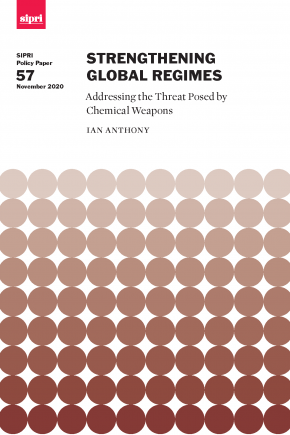Strengthening Global Regimes: Addressing the Threat Posed by Chemical Weapons
The inadequate response to the use of chemical weapons by a state against its own population was an important catalyst leading to the creation of the 1993 Chemical Weapons Convention (CWC). A great deal has been achieved under the CWC, which is an important example of how multilateral cooperation can succeed.
Recent cases of confirmed use prove that the task of eliminating chemical weapons is not complete. Chemical weapons are once again being used on the battlefield and as terror weapons. Moreover, their use in targeted attacks against politically exposed persons presents a new challenge to the commitment made by CWC states parties that chemicals will be developed and produced exclusively for peaceful use.
When they come together to review the CWC in late 2020, the states parties will have to assess whether their response to the challenges posed by the use of chemical weapons has been proportionate to the threat. If not, then they will have the responsibility to create the new capacities, invent the new instruments and develop the new initiatives that will make their efforts more effective.
This SIPRI Policy Paper provides an explanation of the context for some important recent decisions and an analysis of them. It also proposes some actions that CWC states parties could take together in support of the effort to eliminate the threat of chemical weapons.
1. Addressing the threat posed by chemical weapons: Accountability and disarmament
2. Identifying the perpetrators of chemical weapons use in Syria
3. Facilitating attribution of chemical weapons attacks
4. Conclusions and recommendations

